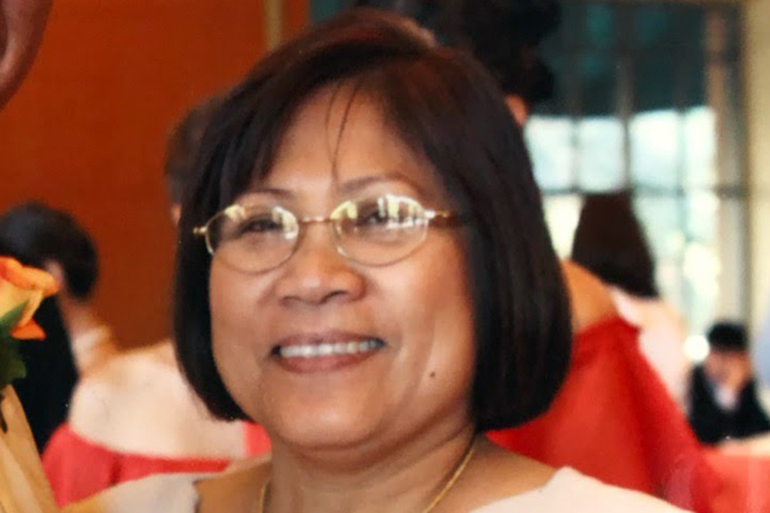Debbie Accad, 72
Occupation: Clinical nursing coordinator
Place of Work: Detroit VA Medical Center in Detroit, Michigan
Date of Death: March 30, 2020
Nurse Divina “Debbie” Accad had cared for veterans for over 25 years and was set to retire in April. But after contracting the novel coronavirus, she spent her final 11 days on a ventilator — and didn’t survive past March.
She joined a growing list of health care professionals working on the front lines of the pandemic who have died from COVID-19.
Accad, 72, a clinical nursing coordinator at the Detroit VA Medical Center, dedicated her life to nursing, according to her son Mark Accad.
“She died doing what she loved most,” he said. “That was caring for people.”
She was born Divina Amo in the Philippine town of Alimodian, known for its sweet bananas. The eldest of four children, she was a precocious student. She finished high school at age 14 and had to wait a year to pursue her dream of nursing school. She graduated from Central Philippine University with a bachelor’s in nursing in 1969.
Yearning to move abroad, she applied to a “fly now, pay later” program for nurses and landed a job in Chicago, joining tens of thousands of Filipino nurses who have migrated to the United States. She later moved to Taylor, Michigan, where she married William Accad in 1985 and raised four children with him.
Her niece April Amada lives in Accad’s hometown. She remembers her aunt as a generous cook: A visit from Tita Debbie (Aunt Debbie) meant unli-kainan, or “unlimited food”: She served up big American breakfasts, cooked spicy kielbasa with cabbage and introduced her family to Jell-O.
Accad was the “pillar of the family,” Amada said, improving their quality of life by sending home money, and even supporting her younger sister through nursing school.
Amada said her aunt first signaled she was sick on the evening of March 16, telling relatives she had a fever and loose stool. On March 19, she reported feeling better by taking Tylenol. But the following day, she was hospitalized with pneumonia, a complication of COVID-19. She told her family in the Philippines that she had tested positive for the disease caused by the coronavirus and asked them to pray for her and to spread the word to local pastors, Amada said.
Amada, who is also a nurse, said her family felt helpless watching their beloved matriarch suffer from afar, and being unable to travel to her bedside because of the infectious nature of the disease. They last saw her face on a video call.
Mark Accad, 36, who lives across the street from his parents, said his mother had diabetes, a risk factor for serious complications from COVID-19. In her last phone call with him, he said, she was preoccupied with her family’s health more than her own. But he could hear in her voice that she was worried.
“It’s just terrible that we all couldn’t be there for her,” he said.
Mark Accad said he believes his mother was exposed by infected co-workers, though that hasn’t been confirmed. She was a nursing supervisor who often stepped in to care for patients, he said.
The Department of Veterans Affairs is facing serious shortages in protective equipment for its health care workers, according to internal memos obtained by The Wall Street Journal. Mark Accad said he doesn’t know whether his mother had adequate protective gear.
In a statement, the Detroit VA Medical Center declined to comment on Accad’s case, citing privacy concerns, but confirmed that an employee of her age died from coronavirus complications.
The VA has “implemented appropriate measures to ensure the safest health care environment for each Veteran, visitor and employee,” including immediately isolating patients known to be at risk for a COVID-19 infection. As of Monday, nine VA health care workers systemwide had died of COVID-19 complications, and over 1,500 were being quarantined because of coronavirus infections, according to VA spokesperson Christina Noel.
Mark Accad said he would like his mother’s story to raise awareness of the risks health care workers face in the global pandemic.
“She’s a hero for what she did,” he said.
This story is part of Lost On The Frontline, a project from The Guardian and Kaiser Health News that aims to document the lives of every healthcare worker in America who dies from COVID-19 during the pandemic. We’ll be sharing more about the project soon, but if you have a colleague or loved one we should include, please email covidtips@kff.org.







